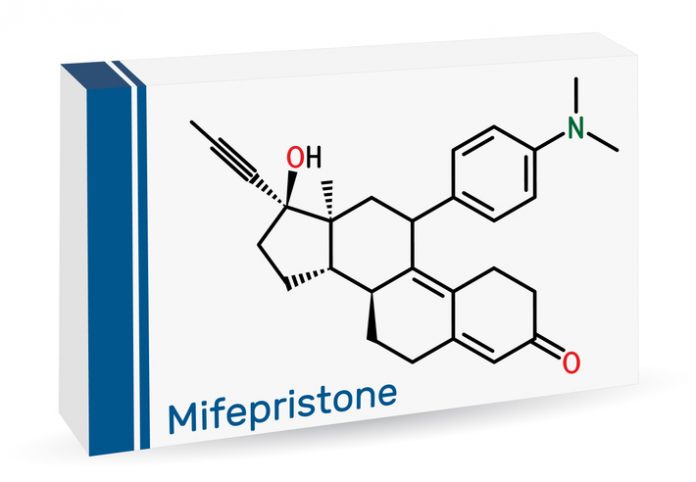A Nebraska state court sentenced a woman to jail after she pled guilty to using the abortion drug Mifepristone to end her pregnancy at 29 weeks and burning the remains of the unborn child and burying him.
On July 20, the Madison County judge ordered Celeste Burgess, aged 18, to 90 days in jail and two years’ probation. Jessica Burgess, her mother, aged 42, will be sentenced in September for supplying the abortion drug without a medical license and helping to conceal the baby’s remains.
At the time of the crime, abortion was illegal in Nebraska after the 20th week; it is now illegal after 12 weeks. Prosecutors say Jessica Burgess ordered the abortion pills online and gave them to her daughter, aged 17 at the time.
Different Safety Standards
The case demonstrates how accessible and easily abused abortion drugs became after the Food and Drug Administration (FDA) approved Mifepristone as a mail-order drug in December 2021, removing the in-person dispensing requirement put into place during the Trump administration.
A lawsuit is working its way through the courts challenging the legality of the original approval of Mifepristone. The lawsuit, filed by the Alliance for Hippocratic Medicine, claims the FDA ignored safety concerns when it approved the drug in 2000.
Half of all abortions are now performed chemically, but there are no reasonable safety measures or standards, says Jane Orient, M.D., executive director of the Association of American Physicians and Surgeons.
“Chemical abortions are not safe,” said Orient. “They have four times as many complications as surgical abortions. We don’t know exactly how unsafe because we don’t collect the needed data. The FDA ignores its own rules for products that further a political agenda such as abortion or transgender ideology.”
Pill Has Serious Side Effects
Mifepristone ends the pregnancy by causing the mother to hemorrhage, a condition deemed a medical emergency, according to an article posted by the National Library of Medicine at the National Institutes of Health, on February 15, 2023.
The article points out that hemorrhage is a leading cause of death, second to trauma, in Americans age 46 and under. Despite this massive risk to women, abortion providers now have lower standards of care.
“Without doctor oversight, women face increased risk of hemorrhage, infection, death, incomplete abortion requiring surgery and undiagnosed ectopic pregnancy with risk of death,” said Michelle Cretella, M.D., co-chair of the American College of Pediatrics Adolescent Sexuality Council.
‘Legal Not the Same as Safe’
In an article titled “The FDA is Dead Wrong in its Review of Mailed Abortion Pill Safety,” a former senior advisor to the FDA commissioner, David Gortler, Pharm.D., wrote that studies referenced to affirm the safety of the drug by the FDA “were shamefully deceptive, and instead of referencing ‘safety’ used muddy, academically unacceptable language like ‘unplanned clinical encounters.’”
“Unfortunately, it’s just one more in a series of dozens of examples of FDA ignoring clear clinical data pointing in the opposite direction to force through unproven edicts,” Gortler wrote. “In the meantime, the cumulative safety profile of mifepristone predicts that the FDA’s decision to allow mailing of abortion drugs for at-home use will lead to preventable morbidity and mortality in America’s women and children.”
Orient cited the case of Kermit Gosnell, who was convicted of murder in the deaths of women he treated, as just one horrific example of the abortion industry’s lack of any ethical standards.
“Regulation of abortion facilities for basic health and safety concerns is nonexistent to lax,” said Orient. “‘Legal’ is not the same as safe. I can’t ever recall hearing of a big malpractice award against an abortionist whose patient died of hemorrhage or [a] perforated uterus.”
Dobbs Decision’s Impact
Abortion advocates have clamored for legal “protection” of abortion seekers and providers since the 2022 overturning of Roe v. Wade in the Dobbs v. Jackson Women’s Health Organization case.
“After Dobbs, abortion advocates can no longer claim that the Constitution contains a mother’s right to kill her baby,” said Orient. “So, they are seeking to circumvent states’ protection of developing babies with blatant disregard for the health of mothers.”
The evidence in the Nebraska case came from a search warrant of Facebook messages between Celeste Burgess and her mother, leading police officers to the field where the baby’s remains were buried.
Abortion Privacy Carve-out
But a new federal rule could limit the information investigators will be able to access in abortion-related cases.
The revision of the Health Insurance Portability and Accountability Act, or HIPPA, privacy rules will restrict access to medical records involving “reproductive health.”
“After decades of Americans being raised to accept the heinous act of killing an unborn baby not as a crime but as a ‘woman’s right,’ why is anyone surprised by the heinous killing of a newborn by this mother and grandmother?” asked Cretella. “These [abortion drugs] drive increased sexual promiscuity, increased STIs (Sexually Transmitted Diseases), increased sexual exploitation/abuse and repeat unwanted pregnancies as well as negative psychological effects.”
The women who fought for the right to vote recognized that terminating a pregnancy was killing a person, says Cretella.
“Deep down everyone knows that abortion is murder of the worst kind; no one is more innocent or vulnerable than an unborn child,” said Cretella. “Even the first-wave feminists decried abortion as pre-natal infanticide.”
Ashley Bateman (bateman.ae@googlemail.com) writes from Virginia.




















